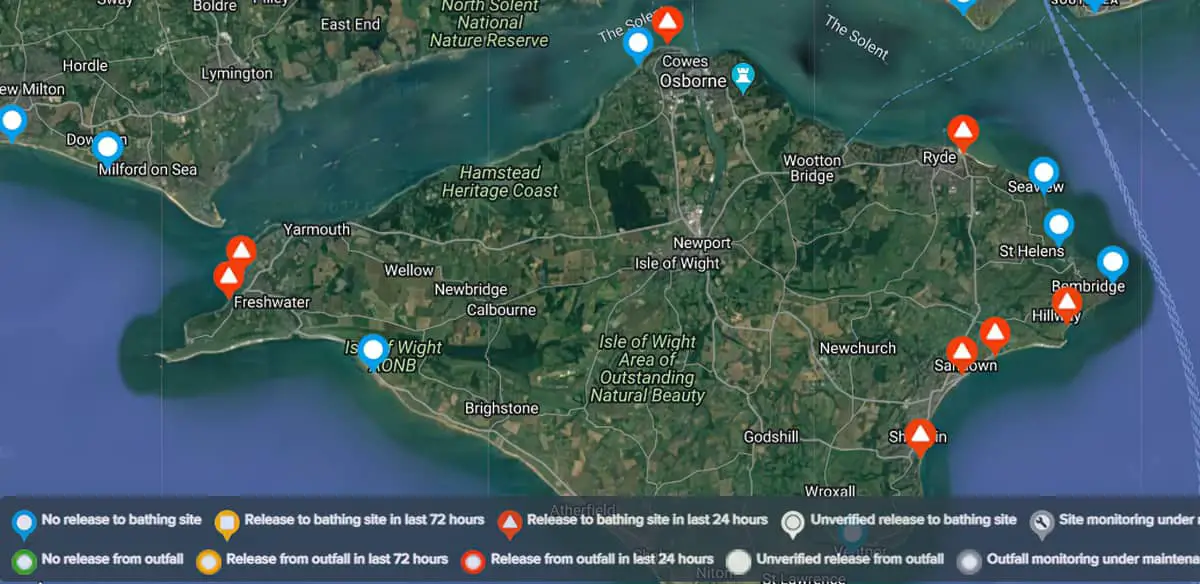There has been much talk about the Government’s plan to crack down on water companies who discharge sewage in our rivers and bathing waters.
In August, the Government announced new stricter targets on pollution from sewage and revealed the timeline for water companies to meet those targets.
The timeline for improvement
It will be 13 years (by 2035) until water companies will have to improve all storm overflows discharging into or near every designated bathing water; and improve 75 per cent of overflows discharging to high priority nature sites.
However, it’s another 28 years (by 2050) until this will apply to all remaining storm overflows covered by the targets, regardless of location.
No extra cost to the customer – yet
The Government said the plans “strike the right balance between the need for investment and the impact on consumers”.
They claim there will be no changes to water bills until 2025 and that they’ve ruled out options which could add up to £817 a year to average household water bills.
Pledge by Southern Water
Southern Water have pledged to reduce their sewage emissions to bathing waters and rivers. Almost a year ago they claimed to be on track to reduce by 80 per cent all pollution incidents by 2025.
This year (2022) has seen countless incidents of sewage overflow discharged into bathing waters around the Isle of Wight following heavy rain.
Storm overflows
Today (Thursday) a total of eight overflow releases into bathing waters around the Isle of Wight are highlighted by Southern Water’s own Beach Buoy service.
Southern Water say the “most efficient, cost-effective and environmentally-beneficial way” to stop the use of storm overflows is to slow the amount of surface water that enters the sewer during a storm.
Earlier this year they also revealed the Isle of Wight would become a Pathfinder priority site.
The Storm Overflow Task Force
Southern Water’s ‘Storm Overflow Task Force’ is responsible for delivering five pathfinder projects in the next two years, the Isle of Wight being one of those.
Southern Water say they’ll complete each project in three stages:
- Initial survey of the catchment area and action any immediate interventions. This could include cleaning screens and pipes to reduce the chance of blockages.
- Implement ‘no regret’ interventions and establish pilots of new concepts and approaches. This could include measures such as controlled improvements on existing assets and piloting new schemes and incentives to encourage surface water management within the pathfinder catchment.
- Implementing larger and more complex interventions to deliver the desired outcome for the project. This will involve working in partnership to deliver at scale. Examples of the types of interventions that could be implemented at this stage include: installing soakaways, roadside swales, rain gardens in schools; real time smart control of sewer networks, highway drainage enhancements and development of public green spaces.
You can read more about how this will relate to the Isle of Wight on the Southern Water Website.
Large fines
In 2021, Southern Water walked off with £139m profit, despite being fined £90m for illegally discharging sewage into rivers and coastal waters throughout the south-east.
One-star rating
During Summer 2022, the Environment Agency slapped Southern Water with a one-star rating, stating their performance in the last year was “terrible across the board”, with a whole host of failures highlighted.
All eyes will be on Southern Water to ensure they meet their pledged targets.
Storm Overflows Discharge Reduction Plan
You can read full details of the Government’s Storm Overflows Discharge Reduction Plan in the document below.





